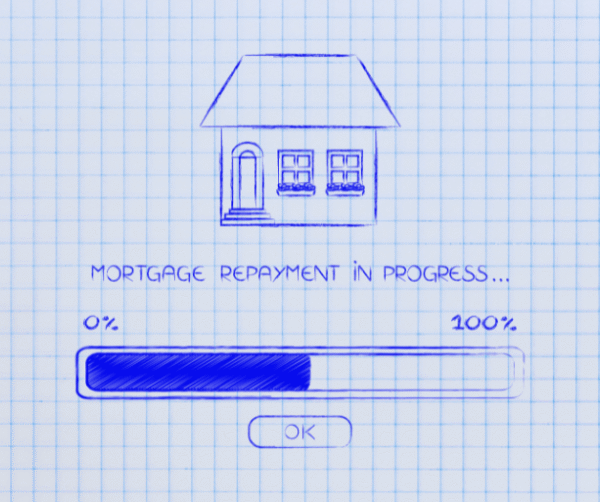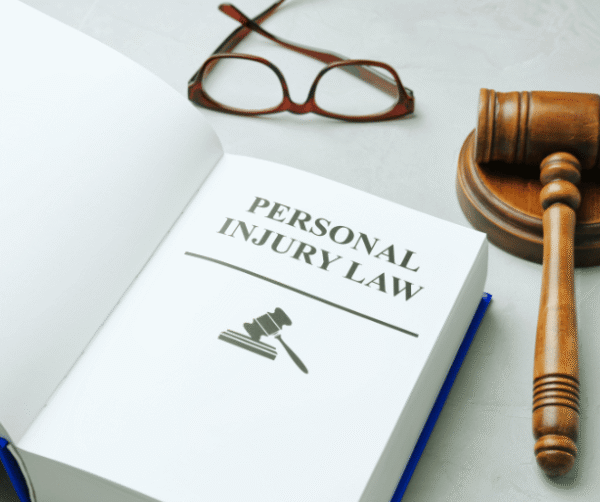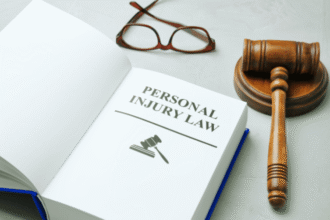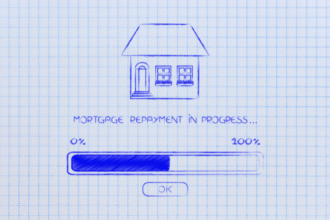Understanding Offshore Accidents and the Role of an Offshore Accident Lawyer

Offshore accidents refer to incidents that occur on offshore platforms, vessels, rigs, or maritime environments. These accidents can result in serious injuries, sometimes even fatalities, due to the high-risk nature of offshore work. An offshore accident lawyer specializes in handling legal cases related to injuries sustained in these environments.
Offshore accident lawyers are legal professionals who focus on representing individuals injured in offshore incidents, such as oil rig accidents, maritime collisions, or injuries aboard offshore vessels. Their expertise encompasses maritime law, personal injury law, and the specific regulations governing offshore industries.
Why You Need an Offshore Accident Lawyer
In the aftermath of an offshore accident, victims face complex legal challenges. Hiring an offshore accident lawyer is crucial for several reasons:
- Legal Expertise: Offshore accident lawyers possess specialized knowledge of maritime law and the complexities of offshore injury claims. They understand the unique regulations governing offshore industries, which differ from standard workplace injury laws.
- Navigating Maritime Laws: Maritime laws can be intricate and distinct from land-based injury laws. Offshore accident lawyers are well-versed in these laws and can effectively navigate legal proceedings, ensuring your rights are protected.
- Investigation and Evidence Gathering: Offshore accident cases often require extensive investigation to determine liability. Lawyers experienced in this field know how to gather crucial evidence such as witness statements, accident reports, and industry regulations.
- Maximizing Compensation: Offshore accidents can lead to severe injuries, impacting victims’ lives and livelihoods. An offshore accident lawyer will work to maximize compensation for medical bills, lost wages, pain and suffering, and other damages.
- Representation in Court or Settlement Negotiations: If your case goes to court or requires negotiations with insurance companies or employers, having a skilled offshore accident lawyer advocating for you is invaluable.
What to Look for in an Offshore Accident Lawyer
When seeking legal representation for an offshore accident case, consider the following qualities:
- Experience: Look for a lawyer with a proven track record of handling offshore accident cases successfully.
- Specialization: Choose a lawyer who specializes in maritime law and offshore injury claims.
- Resources: Ensure the lawyer has the resources to thoroughly investigate your case and pursue maximum compensation.
- Reputation: Research the lawyer’s reputation and client reviews to gauge their credibility and professionalism.
- Communication Skills: Effective communication is essential. Choose a lawyer who keeps you informed and explains legal proceedings clearly.
Legal Framework for Offshore Injury Claims
When it comes to offshore injury claims, navigating the legal framework requires specialized knowledge and experience from an offshore accident lawyer. These legal proceedings typically involve incidents that occur in maritime environments, such as offshore oil rigs, platforms, vessels, or other maritime workplaces. Understanding the legal process is crucial for anyone seeking compensation for injuries sustained in these settings.
Jurisdiction and Applicable Laws
Offshore accidents often fall under maritime law, which can be complex and distinct from traditional land-based personal injury law. The jurisdiction and applicable laws can vary depending on factors such as the location of the accident, the type of vessel or structure involved, and the employment status of the injured party.
An offshore accident lawyer must have a deep understanding of maritime law, including the Jones Act, General Maritime Law, Longshore and Harbor Workers’ Compensation Act (LHWCA), and other relevant statutes and regulations. These laws determine the rights and remedies available to injured offshore workers.
Proving Liability and Negligence
In offshore injury cases, proving liability and negligence can be challenging. An experienced offshore accident lawyer will investigate the circumstances surrounding the accident, gather evidence, and analyze the actions of all parties involved. Liability could rest with the employer, a third-party contractor, equipment manufacturers, or other entities.
To establish negligence, it must be shown that the responsible party breached a duty of care owed to the injured worker, which directly resulted in the injuries. This can involve demonstrating unsafe working conditions, failure to provide proper training or equipment, or other acts of negligence.
Role of Offshore Accident Lawyers
Offshore accident lawyers play a crucial role in advocating for their clients throughout the legal process. They provide legal advice, negotiate with insurance companies and opposing parties, and represent clients in court if necessary. Their primary goal is to secure fair compensation for the injured party, which may include damages for medical expenses, lost wages, pain and suffering, and other related losses.
These attorneys must possess not only legal expertise but also a deep understanding of the unique challenges faced by offshore workers and the specific risks associated with maritime work.
Specialized Knowledge and Experience
Due to the complexities of maritime law and offshore injury claims, it is essential to work with an attorney who specializes in this area. Offshore accident lawyers have the knowledge and experience to navigate the intricacies of maritime regulations, jurisdictional issues, and industry-specific practices.
Their familiarity with the nuances of offshore accidents allows them to build strong cases on behalf of injured workers and their families. By leveraging their expertise, these lawyers can maximize the chances of obtaining a favorable outcome for their clients.
3. Qualifications and Experience of Offshore Accident Lawyers
Offshore accident cases can be complex and require specialized legal expertise. When seeking an offshore accident lawyer, it’s crucial to consider their qualifications and experience in this specific area of law.
Education and Credentials:
An effective offshore accident lawyer typically possesses a strong educational background in law. Look for lawyers who have graduated from reputable law schools and are licensed to practice in relevant jurisdictions. Additionally, certifications or memberships in maritime law associations can indicate a lawyer’s commitment to this field.
Specialized Experience:
Experience matters significantly when dealing with offshore accident cases. Seek out lawyers who have a track record of handling maritime and offshore injury claims successfully. Lawyers with specific experience in offshore accidents will be familiar with the unique challenges and regulations involved in these cases.
Understanding of Maritime Law:
Offshore accidents often fall under maritime law, which is a specialized area of legal practice. A proficient offshore accident lawyer should have a deep understanding of maritime laws and regulations governing offshore operations, including the Jones Act, Longshore and Harbor Workers’ Compensation Act (LHWCA), and general maritime law.
Trial Experience:
In the event that your case goes to trial, having a lawyer with trial experience can be crucial. Look for a lawyer who is confident in representing clients in court and has a successful litigation history.
Negotiation Skills:
Many offshore accident cases are resolved through negotiations and settlements. A skilled offshore accident lawyer should possess strong negotiation skills to advocate effectively for fair compensation on behalf of their clients.
Client Reviews and Testimonials:
Researching client reviews and testimonials can provide valuable insights into a lawyer’s reputation and the outcomes they have achieved for past clients in offshore accident cases. Look for positive feedback that highlights the lawyer’s professionalism, communication skills, and dedication.
4. Responsibilities of Offshore Accident Lawyers
An offshore accident lawyer plays a pivotal role in guiding clients through the legal process following an offshore injury. Their primary responsibilities revolve around advocating for the rights and interests of injured offshore workers.

Case Evaluation:
Initially, an offshore accident lawyer will evaluate the details of the case to determine its viability. This includes assessing the circumstances of the accident, gathering evidence, and identifying liable parties.
Legal Advice:
Offshore accident lawyers provide legal advice tailored to each client’s situation. They explain rights and legal options, including the possibility of filing a claim under maritime laws such as the Jones Act or pursuing compensation through other avenues like the LHWCA.
Investigation:
Lawyers will conduct thorough investigations to gather evidence supporting the injury claim. This may involve reviewing accident reports, medical records, witness statements, and other pertinent documentation.
Filing Claims:
Offshore accident lawyers are responsible for preparing and filing injury claims on behalf of their clients. They ensure that all necessary paperwork is completed accurately and submitted within statutory deadlines.
Negotiations:
Lawyers negotiate with insurance companies and opposing legal counsel to secure fair settlements for their clients. This includes advocating for compensation covering medical expenses, lost wages, pain and suffering, and other damages resulting from the offshore accident.
Litigation:
If a fair settlement cannot be reached through negotiations, the lawyer will prepare the case for trial and represent the client in court. This involves presenting evidence, cross-examining witnesses, and making legal arguments to support the client’s claim.
Client Communication:
Throughout the legal process, offshore accident lawyers maintain open communication with their clients, keeping them informed about case developments, legal strategies, and next steps.
Beyond legal representation, offshore accident lawyers offer support and advocacy to their clients during what can be a challenging and stressful time. They strive to achieve the best possible outcome while ensuring their clients’ rights are protected.
By entrusting their case to a qualified and experienced offshore accident lawyer, injured offshore workers can focus on recovery while having peace of mind that their legal matters are in capable hands.
5. Types of Compensation in Offshore Accident Cases
When offshore workers are injured due to accidents or incidents on oil rigs, platforms, or vessels, they may be entitled to various types of compensation. An offshore accident lawyer plays a crucial role in helping victims understand and pursue these compensation claims. Here are some common types of compensation available in offshore accident cases:
Medical Expenses
Injured offshore workers can often claim compensation for all medical expenses related to their injuries. This includes hospital bills, doctor’s fees, medication costs, rehabilitation expenses, and any necessary ongoing medical treatment. An offshore accident lawyer can ensure that all current and future medical costs are considered in the compensation claim.
Lost Wages and Income
If an offshore worker is unable to work due to injuries sustained in an accident, they are entitled to compensation for lost wages and income. This includes not only the wages lost during the recovery period but also potential future earnings if the injuries result in long-term or permanent disability. An experienced offshore accident lawyer can accurately assess the impact of the injury on the victim’s earning capacity and pursue appropriate compensation.
Pain and Suffering
Beyond financial losses, offshore accident victims may also be compensated for the physical pain and emotional suffering caused by their injuries. Pain and suffering damages aim to provide compensation for the trauma, distress, and reduced quality of life resulting from the accident. An offshore accident lawyer can advocate for fair compensation based on the severity and impact of these non-economic damages.
Disability and Impairment
Serious offshore accidents can result in partial or total disability, affecting the victim’s ability to work and perform daily activities. Compensation for disability and impairment considers the long-term consequences of the injury on the victim’s life and livelihood. An experienced offshore accident lawyer understands how to quantify these losses and fight for appropriate compensation.
Punitive Damages
In cases where the offshore accident was caused by egregious negligence or misconduct, punitive damages may be awarded to punish the responsible party and deter similar behavior in the future. An offshore accident lawyer can assess whether punitive damages are applicable based on the circumstances of the accident and pursue this additional compensation on behalf of the injured worker.
6. Steps Involved in Pursuing an Offshore Injury Claim
Navigating an offshore injury claim can be complex due to the unique legal and logistical challenges involved. Working with an experienced offshore accident lawyer is essential to ensure that your rights are protected and you receive the compensation you deserve. Here are the typical steps involved in pursuing an offshore injury claim:
1. Consultation and Case Evaluation
The process begins with an initial consultation with an offshore accident lawyer who specializes in maritime law. During this meeting, the lawyer will review the details of the accident, assess the strength of your case, and explain your legal options. This is a critical step to understand the potential outcomes and decide on the best course of action.
2. Investigation and Evidence Gathering
The lawyer will conduct a thorough investigation into the circumstances surrounding the offshore accident. This may involve collecting witness statements, reviewing accident reports, examining safety records, and consulting with experts to determine liability. Gathering compelling evidence is crucial for building a strong case.
3. Notification of Claims
In maritime law, specific deadlines and procedures must be followed to notify the employer, vessel owner, and other potentially liable parties of the injury claims. An offshore accident lawyer will ensure that all necessary notifications are made within the required timeframes to preserve your rights to compensation.
4. Negotiation and Settlement
Many offshore injury cases are resolved through negotiations with insurance companies or legal representatives of the responsible parties. Your offshore accident lawyer will advocate on your behalf during settlement discussions to secure a fair and adequate compensation package that covers all your losses and damages.
5. Litigation, if Necessary

If a fair settlement cannot be reached through negotiations, your lawyer will proceed to file a lawsuit in court. Litigation involves presenting your case before a judge or jury, where your offshore accident lawyer will argue for your rights and seek maximum compensation. Throughout this process, your lawyer will provide legal representation and guidance every step of the way.
6. Post-Settlement Support
Even after a settlement or court verdict, an offshore accident lawyer can assist with the enforcement of compensation payments and address any post-settlement issues that may arise. They will ensure that you receive the full compensation you are entitled to under the law.
In summary, pursuing an offshore injury claim requires specialized knowledge and expertise in maritime law. Hiring a dedicated offshore accident lawyer is crucial to navigate the complexities of the legal process and achieve a favorable outcome for injured offshore workers.






